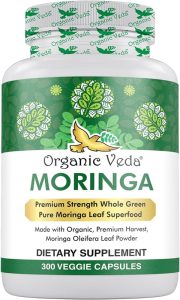Eggs are packed with essential nutrients like protein, vitamins, and minerals, making them a valuable addition to your diet. A well-balanced feeding regimen, including eggs, can provide vital nutrients for overall health.
Incorporating eggs into your diet can contribute to a well-rounded nutritional profile and support overall wellness. From enhancing muscle growth to promoting heart health, eggs offer a range of benefits that can positively impact your well-being. Understanding the nutritional value of eggs and their role in a balanced feeding regimen can help you make informed dietary choices.
By incorporating eggs into your diet, you can optimize your nutritional intake and support your overall health and wellness.
1. Importance Of Nutritional Value In Eggs
Eggs are a powerhouse of nutrition that play a vital role in maintaining a healthy diet. They are not only versatile in cooking but also packed with essential nutrients that benefit our overall well-being.
Nutritional Composition Of Eggs
Eggs are rich in protein, vitamins, and minerals that are crucial for our bodies to function optimally. Here’s a breakdown of the nutritional composition of eggs:
| Nutrient | Amount per Egg |
|---|---|
| Protein | 6 grams |
| Vitamin A | 6% of daily value |
| Vitamin D | 7% of daily value |
| Iron | 5% of daily value |
Health Benefits Of Consuming Eggs
Eating eggs has various health benefits due to their nutrient-rich profile. Here are some advantages of including eggs in your diet:
- Helps in muscle growth and repair
- Improves brain function and memory
- Supports healthy vision with its antioxidants

Credit: www.primeivfcentre.com
2. Egg Yolk: The Nutritional Powerhouse
Egg yolk is a nutritional powerhouse that offers a wide array of essential nutrients for overall health.
2.1 Nutrients In Egg Yolk
Egg yolks are packed with vital nutrients like:
- Protein for muscle repair and growth
- Vitamin D for bone health
- Iron for oxygen transport in the body
- Choline for brain function
- Lutein and zeaxanthin for eye health
2.2 Role Of Egg Yolk In Overall Health
Egg yolk plays a crucial role in maintaining:
- Cardiovascular health due to its omega-3 fatty acids
- Healthy cholesterol levels as it contains good cholesterol
- Brain function thanks to choline content
3. Egg White: A Low-calorie Protein Source
Egg whites provide a low-calorie protein source, making them an excellent choice for those following a healthy diet. High in nutrients and easy to incorporate into meals, they offer a wholesome addition to anyone’s feeding regimen.
When it comes to a low-calorie protein source, egg white emerges as a nutritious option. It is packed with essential nutrients that contribute to your overall well-being. Let’s explore the specific components of egg white that make it an excellent protein choice.
3.1 Protein Content In Egg White
Egg white is renowned for its high protein content, making it ideal for individuals focused on muscle development or weight loss. With approximately 3.6 grams of protein per large egg white, it provides a substantial boost to your daily protein intake.
3.2 Other Nutrients In Egg White
While protein takes center stage, egg white also contains other essential nutrients that contribute to a balanced diet. These nutrients include:
- Vitamin B2 (Riboflavin): Egg white contains riboflavin, which aids in energy production and supports proper cell function.
- Vitamin B3 (Niacin): Niacin is essential for a healthy metabolism and plays a role in converting food into energy.
- Vitamin B5 (Pantothenic Acid): Pantothenic acid is crucial for the synthesis of hormones and neurotransmitters, promoting overall brain health.
- Vitamin B6 (Pyridoxine): Pyridoxine supports numerous bodily functions, including metabolism, brain development, and maintaining a healthy immune system.
- Choline: Egg white is a good source of choline, which is vital for brain health and the production of neurotransmitters.
- Selenium: Selenium is an essential mineral with antioxidant properties that helps protect the body against damage caused by oxidative stress.
Eating egg white regularly can supply your body with a range of valuable nutrients while keeping your calorie intake in check. Incorporating egg white into your diet can be as simple as enjoying a delicious egg white omelet or adding it to smoothies for an extra protein boost. By doing so, you can support your health and fitness goals while enjoying the many benefits of this low-calorie protein source.
4. Selecting The Right Eggs For Optimal Nutrition
When it comes to optimal nutrition, selecting the right eggs is crucial. Not all eggs are created equal, and various factors determine the nutritional value of eggs. Understanding these factors can help you make informed choices for your health and well-being.
4.1 Organic Vs. Conventional Eggs
- Organic Eggs: These are produced by free-range hens that are fed an organic diet. They are devoid of pesticides, antibiotics, and synthetic hormones which is better for human health.
- Conventional Eggs: These eggs come from hens raised in crowded conditions and are often fed with non-organic feed, antibiotics, and hormones – leading to less nutritious eggs.
4.2 Factors To Consider When Choosing Eggs
- Size: Selecting eggs of the right size is important, as different sizes contain varying amounts of nutrients.
- Color: The eggshell color is determined by the breed of the hen and does not significantly affect nutritional value.
- Freshness: Fresh eggs are preferable as they contain more nutrients and are less likely to spoil.
4.3 Reading Egg Labels
When shopping for eggs, reading the labels can provide valuable information about the quality and nutritional content. Look for terms such as “pasture-raised”, “omega-3 enriched”, and “hormone-free” for eggs with higher nutritional value.
5. Incorporating Eggs Into A Balanced Diet
Eggs are a highly nutritious and versatile food that can be easily incorporated into a balanced diet. Whether you enjoy them for breakfast, lunch, or dinner, eggs offer a wealth of essential nutrients that support overall health and well-being. In this section, we will explore the recommended daily intake of eggs and provide some healthy recipes to help you make the most of this nutritional powerhouse.
5.1 Recommended Daily Intake Of Eggs
When determining the recommended daily intake of eggs, it’s important to consider individual dietary needs and health goals. For most adults, consuming 1 to 2 eggs per day can be a healthy addition to a balanced diet. However, individuals with specific health concerns or dietary restrictions should consult with a healthcare professional to determine their optimal egg intake.
5.2 Healthy Recipes With Eggs
Incorporating eggs into your meals can be both delicious and nutritious. Try these healthy recipes to add variety to your diet:
- Vegetable Omelette: Whip up a colorful omelette with sautéed vegetables for a nutrient-packed meal.
- Spinach and Feta Scramble: Combine fresh spinach and feta cheese for a flavorful and protein-rich breakfast option.
- Avocado Egg Salad: Mash ripe avocados with boiled eggs to create a creamy and satisfying salad.
Eggs are not only a convenient and affordable source of high-quality protein, but they also provide essential nutrients such as vitamins, minerals, and healthy fats. By incorporating eggs into your diet and trying out different recipes, you can reap the nutritional benefits while enjoying a variety of tasty and satisfying meals.
6. Egg Feeding Regimen For Egg-laying Hens
Egg-laying hens require a well-balanced and nutritious diet to maintain their health and productivity. Implementing a proper feeding regimen is crucial to ensure that hens receive all the essential nutrients they need to lay high-quality eggs consistently. In this section, we will discuss the nutritional requirements for egg-laying hens, different types of commercial feeds available, and an optimal feeding schedule and frequency.
6.1 Nutritional Requirements For Egg-laying Hens
To meet the nutritional needs of egg-laying hens, it is important to provide a balanced diet that includes proteins, carbohydrates, fats, vitamins, minerals, and water. Hens require a higher amount of protein because they use it to produce eggs. The table below illustrates the approximate nutritional requirements for egg-laying hens on a daily basis.
| Nutrients | Quantity (per hen per day) |
|---|---|
| Protein | 16-18g |
| Carbohydrates | 100-120g |
| Fat | 6-8g |
| Calcium | 3.5-4g |
| Phosphorus | 0.35-0.40g |
| Vitamins (A, D, E, K, B12, and others) | Varies |
| Water | Approximately 500ml |
6.2 Types Of Commercial Feeds
In commercial poultry farming, various types of feeds are available to meet the specific nutritional requirements of egg-laying hens. Here are some common types of commercial feeds:
- Starter feed: Primarily for young chicks up to six weeks old, this feed provides essential nutrients to support their growth and development.
- Grower feed: Given to hens from six to eighteen weeks of age, this feed helps them continue growing and building strong skeletal structures.
- Layer feed: Specifically formulated for mature egg-laying hens, this feed contains a higher amount of protein and calcium to promote egg production and shell quality.
- Supplemental feed: Additional feed given to hens when needed, which may include greens, fruits, or other natural sources of nutrition.
6.3 Feeding Schedule And Frequency
Establishing an appropriate feeding schedule and frequency is vital to ensure that hens receive their required nutrients consistently. Here is a recommended feeding schedule for egg-laying hens:
- Morning: Provide layer feed in a feeder or trough to meet the hens’ nutritional needs throughout the day.
- Mid-day: Offer supplemental feed such as greens or fruits to promote a well-rounded diet.
- Evening: Provide a final portion of layer feed to sustain hens overnight when they are not foraging.
It is important to note that the quantity of feed provided should be sufficient for all hens to access simultaneously without excessive waste. Additionally, fresh water should always be available to the hens, as water is essential for digestion, nutrient absorption, and overall well-being.
7. Impact Of Nutritional Factors On Egg Quality
7.1 Proximity Of Feeding To Egg Production
Feeding regimen directly impacts egg quality, timing of feeding before laying crucial.
7.2 Effect Of Diet Composition On Egg Quality
Egg quality influenced by diet composition, varied diets may result in different quality levels.
7.3 Importance Of Water In Egg Production
Adequate water intake vital for high-quality egg production and overall hen health.

Credit: www.masalamonk.com
8. Common Nutritional Disorders In Egg-laying Hens
Egg-laying hens, just like any living creature, are prone to nutritional disorders which can affect their egg production and overall health. Proper nutritional supplementation and a well-rounded feeding regimen are essential to prevent these disorders.
8.1 Calcium Deficiency And Soft-shelled Eggs
Calcium deficiency in hens can lead to the production of fragile, soft-shelled eggs. This disorder often occurs when laying hens do not receive enough dietary calcium to support the formation of strong eggshells. To prevent this, it’s crucial to provide hens with a balanced feed that includes a sufficient amount of calcium, or even offer calcium supplements when necessary.
8.2 Protein Deficiency And Reduced Egg Production
A shortage of protein in the diet of egg-laying hens can lead to a decrease in egg production. Ensuring hens receive a protein-rich diet is crucial for maintaining a steady egg-laying cycle. Protein sources such as soybean meal or fish meal can be included in their diet to fulfill their protein requirements.
8.3 Vitamin Deficiencies And Abnormal Egg Formation
Vitamin deficiencies, particularly vitamin A and D, can result in abnormal egg formation. Hens should be provided with a well-balanced diet containing adequate amounts of vitamins to prevent abnormal egg production. Incorporating vitamin-rich supplements or ensuring access to natural sources of vitamins can help maintain healthy egg production.
9. The Role Of Supplements In Enhancing Egg Quality
In the quest for enhancing egg quality in laying hens, utilizing supplements plays a pivotal role. These supplements provide essential nutrients that can positively impact the overall health and productivity of egg-laying hens. Let’s delve into the significance of supplements in optimizing the nutritional value of eggs and explore the various aspects associated with their use.
9.1 Types Of Supplements For Egg-laying Hens
- Vitamins and minerals
- Amino acids
- Probiotics and prebiotics
9.2 Benefits And Risks Of Supplement Use
- Benefits – Improved egg quality, enhanced immune function, increased nutrient absorption
- Risks – Over-supplementation leading to toxicity, potential nutrient imbalances
9.3 Recommended Dosage And Administration
| Supplement | Dosage | Administration |
|---|---|---|
| Vitamins and minerals | As per manufacturer recommendations | Mixed in feed or water |
| Amino acids | Varies based on protein content of diet | Incorporated into feed |
| Probiotics and prebiotics | Follow label instructions | Mixed with feed or water |
10. Ensuring Food Safety In Egg Consumption
Eggs are not only delicious and versatile, but they also provide numerous health benefits due to their high nutritional value. However, it is important to handle and cook eggs properly to eliminate the risk of foodborne illnesses. In this section, we will discuss the essential practices for ensuring food safety when consuming eggs.
10.1 Proper Storage And Handling Of Eggs
Proper storage and handling of eggs significantly contribute to food safety. Follow these guidelines to maximize the freshness and reduce the risk of contamination:
- Always store eggs in the refrigerator at a temperature of 40°F (4°C) or below. This helps to inhibit bacterial growth and maintain their quality.
- Keep eggs in their original carton, as it provides extra protection and keeps them from absorbing odors from other foods in the refrigerator.
- When handling eggs, wash your hands thoroughly with warm water and soap before and after. This helps eliminate bacteria that may be present on your hands.
- Do not wash eggs before storing them, as this can remove the protective coating on the shell that helps to prevent contamination.
- Ensure that raw eggs are separated from other foods to prevent cross-contamination. Use different cutting boards and utensils when working with eggs.
- When cracking eggs, do it carefully to avoid transferring any bacteria from the shell to the egg contents.
- If you accidentally drop eggshell into the egg whites or yolks, use a clean spoon or fork to remove it, rather than your fingers.
10.2 Cooking Tips To Reduce Risk Of Foodborne Illness
Proper cooking methods play a crucial role in reducing the risk of foodborne illness associated with egg consumption. Adhere to these cooking tips to ensure eggs are safe to eat:
- Cook eggs until both the whites and the yolks are thoroughly set. This eliminates any harmful bacteria that might be present.
- Avoid consuming raw or undercooked eggs, including dishes such as homemade mayonnaise, mousse, or Caesar salad dressing that contain raw eggs.
- When preparing dishes that require raw or partially cooked eggs, like hollandaise sauce or eggnog, use pasteurized eggs to reduce the risk of salmonella infection.
- Do not keep cooked eggs at room temperature for more than two hours. Promptly refrigerate any leftover cooked eggs to prevent bacterial growth.
- Refrain from eating eggs with visible cracks, as they can harbor bacteria. Discard them immediately.
- For recipes that necessitate eggs as an ingredient, ensure they are adequately cooked to reach a safe internal temperature of 160°F (71°C).
By following these storage and cooking practices, you can enjoy eggs without compromising your health. Stay mindful of food safety and savor this nutrient-rich ingredient to its fullest potential.

Credit: www.goodhousekeeping.com
Frequently Asked Questions For Nutritional Value Of Eggs And Feeding Regimen
How Many Calories Are In An Egg?
Eggs typically contain around 70-80 calories, varying by size and cooking method.
What Nutrients Are Found In Eggs?
Eggs are rich in protein, vitamins D and B12, and essential minerals like zinc and iron.
How Often Should Chickens Be Fed For Optimal Egg Production?
Chickens should be fed a high-quality diet daily to support consistent egg production.
What Is The Impact Of Feeding Regimen On Egg Quality?
A balanced feeding regimen directly affects egg quality, ensuring optimal nutrition and freshness.
Can You Feed Chickens Table Scraps?
Feeding chickens table scraps can be done cautiously, ensuring it does not compromise their balanced diet.
Are There Any Specific Dietary Requirements For Backyard Chicken Eggs?
Backyard chicken eggs benefit from a varied diet including grains, greens, and calcium supplements.
How Do Eggs From Free-range Chickens Differ Nutritionally?
Eggs from free-range chickens may have higher levels of omega-3 fatty acids and vitamin E.
What Is The Role Of Protein In Egg Nutrition?
Protein in eggs supports muscle growth, repairs body tissues, and provides a feeling of fullness.
Can The Color Of The Egg Yolk Indicate Its Nutritional Value?
The color of the egg yolk is influenced by the hen’s diet and does not necessarily indicate nutritional value.
Is It Advisable To Have Eggs As A Regular Part Of The Diet?
Including eggs in moderation as part of a balanced diet is generally considered beneficial for health.
Conclusion
Eggs are a nutrient powerhouse, packed with essential vitamins, minerals, and protein. Understanding the nutritional value of eggs can help create an effective feeding regimen for a healthier lifestyle. By incorporating eggs into your diet, you can optimize your overall health and well-being.
Remember to consider your specific dietary needs and consult with a healthcare professional for personalized advice. Trust the goodness of eggs to nourish your body!






Be First to Comment